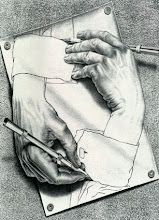I am a social
drinker… But I socialize quite often!! However, I have always
(mostly) limited the amount of drinks I take per sitting.
Reasons being:
1) It's expensive to
drink too much, both for pocket and liver.
2)The fun is in the
woozy state and not being sloshed out
3)Alcohol in limited
quantities enhance the fun of conversations but reduces it if
quantity increases a lot. (Law of diminishing returns)
4) No hangover the
next day
5) I like being
in control of myself even after a drinking session.
I
have always been proud about myself wrt the 5th point, in
fact to an extent of looking down upon people who loose control of
themselves after drinking. This post will burst the myth of it.
I
held that belief (5th point) largely because of comparison
between “control I possess in my drunk state“ and
“control others possess in their drunk state”. But who are
the others? It's only those drinkers who loose control of
themselves (quite evidently) after drinking. But I had missed one major aspect in my
comparison, which is the level of “control I posses in my sober
state” and the level of “control the others posses in their sober
states”. The following graph will help in understanding of where my
delusion came from:
* - There are no specific units for measuring the amount of control
one has. The measures used here are coherence in talking (Rather
Bullshitting), walking, etc etc. Arbitrarily I am assigning 1 to the
absolute but hypothetical saint state and 0 to completely sloshed out
state.
The point of
importance here is at 180mL (3 pegs of alcohol). My delusion came
form the fact that I was more or less like others even when 3 pegs
had gone down. But the catch here is, my comparison was between my
drunk state to others' sober state. But if the comparison was between
my own sober state to drunk state, my control has reduced. So will I
stop drinking because of this realization? Let action speak louder
than words ;-)
P S: Since I am not
used to drinking large quantities of alcohol in one sitting, I get
sloshed out quite easily than others (Point at 300mL)

